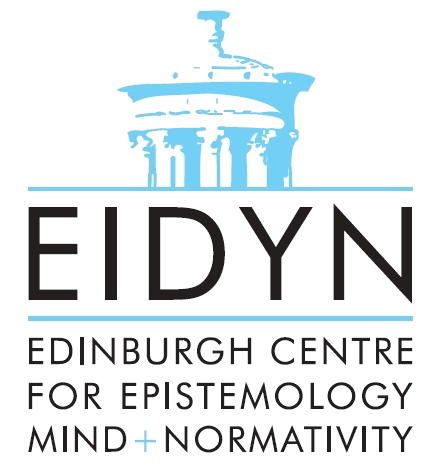哲学导论_第一周_什么是哲学? - Dave Ward
中文版 https://www.coursera.org/learn/zhexue-daolun/
英文版 https://www.coursera.org/learn/philosophy
什么是哲学?
Philosophy is the activity that working out the best way to think about things.
哲学是研究思考事物的最好的方法的一项活动。
当然所有的学科和方法都在试图用正确的方法来理解事物,如果从哲学的角度来回应这个问题,应该是说区别在于,用特定的方式来研究事物,还是后退一步,找出思考和研究事物的特定方式。
哲学不仅仅是一个学科,它是一项我们参与的活动。
哲学是如何与其他一些学科联系起来的?
产生疑问:原因、质疑……
我们实际上是如何研究哲学的?
由内至外、由外至内
所谓的最好或正确的思考事物的方式究竟意味着什么?
……
哲学是基础性的吗?
如果说哲学是找出对事物正确思维方法的活动,我们可以在任何一个领域提出哲学问题,是吗?那哲学家所从事的活动与孩子们好奇的提问有什么区别?
哲学家不仅提出问题,他们也试着想出答案,或者至少尝试思考什么可能会与答案相关。
有很多事情你可以做而且能做得好,你可以思考并且思考得很周到,并不需要以哲学性思维来行动或者思考。比如你是一个脑外科医生或者拆弹专家,你永远不需要退一步想怎么拆弹或大脑是什么之类的哲学问题,这样可能会使你更胜任你的岗位。
但是保持哲学式的提问是有必要的。
所以哲学作为基础(Fundamental)是指哲学式的思考,而不是指问题是无处不在的。
所以说“哲学是寻找思考事物的最佳方式的一种活动”,而当我们以这种方式思考哲学也会有助于我们理解“哲学是基础性的”以及“哲学问题可以在任何地方出现”这样的说法。
如果某疑问或问题属于哲学问题,那么它十分重要吗?
哲学疑问或者问题关乎某种主题的最佳思维方式。其是否重要取决于我们当前试图仔细考虑的主题本身是否重要。
如果我们尝试针对许多无关紧要的主题寻找正确的思维方式,那么,我们在这一过程中提出的哲学问题可能也是无关紧要的。
从问题到答案……我们如何思考?
evidence -> reason -> conclusion
从 ARGUMENT 到 CONCLUSION……ARGUMENT 的本质是什么?
a sequence of evidence and reasoning designed to support a particular conclusion.
ARGUMENT, Valid? not Valid?
True premises grow out true conclusion, which makes the argument Valid.
过程。
Sound? not Sound?
to question the truth of the premises.
premise, evidence/论点
获得自由/自由意志对我们意味着什么?
?
过去 现在 未来 个体 世界
1.The way the world was in the past controls exactly how it is in the present, and how it will be in the future.
2.We’re part of the world, just like everything else.
3.We can’t control how things were in the past, or the way the past controls the present and future.
4.Therefore, we don’t control anything that happens in the world, including all the things that we think, say and do.
1 + 2 + 3 -> 4 #?
Are the premises (1-3) true?
Does the truth of the premises guarantee the truth of the conclusion(i.e. is the argument valid)?
我们并不是要接受或者拒绝结论,而是通过思考来帮助我们聚焦到问题上面,当我们思考自由/自由意志的时候,我们究竟应该思考什么?
"Big Picture"
“Philosophy needs vision and argument…there is something disappointing about a philosophical work that contains arguments, however good, which are not inspired by some genuine vision, and something disappointing about a philosophical work that contains a vision, however inspiring, which is unsupported by arguments…
哲学需要洞察力和论证,有些哲学著作的论证虽好,洞察力却差,结果就令人失望;而有些哲学著作具有启迪性,却没有好的论证来支撑,同样令人失望。
Speculation about how things hang together requires…the ability to draw out conceptual distinctions and connections, and the ability to argue…But speculative views, however interesting or well supported by arguments or insightful, are not all we need. We also need what [the philosopher Myles] Burnyeat called ‘vision’ - and I take that to mean vision as to how to live our lives, and how to order out societies.”
两者结合则需要找出概念上的差别和关联,和证明的能力。然而推测的观点,即使有趣又有众多证据支持,论证又通达,我们需要的却不止如此,我们还需要哲学家 Myles Burnyeat 所说的洞察力,我的理解是洞察我们如何生活,如何组织社会。
- HILARY PUTNAM
stepping back/为什么出发?/返璞归真…
the Vision that might have inspired the argument/topic…
……哲学论证的前提、有效性和完整性
是否存在对事物“正确的”思维方式?
如果存在,我们又怎么知道我们可以通过“思考”获得“正确的”方式?
David Hume
As a good empiricist philosopher, Hume thought that it was crucial that philosophy stay true to our sensory experience of the world.
作为一个经验主义哲学家,休谟认为对一个哲学家来说,关键的是要忠于对这个世界的感官体验。
However, he argued that our experience tells us much less about the world than we usually think.
他认为,通常我们想到的总是比我们的真实体验所告诉我们的要多。Causation: We never really observe one thing causing another to happen.
因果关系:我们从来没有真正看到一件事情导致另一件事情的发生。
We might see one billiard ball roll into another, and then see the second billiard ball roll off.
我们也许能看到一个台球向另一个台球滚过去,然后看到另一个台球滚开。
But all we really observe are the billiard balls at various times and places.
但是我们真正看到的只有台球出现在不同的时间和地点。
Our experience of one ball causing the other to roll off is something extra, over and above the times and places we see the billiard balls occupying.
一个球导致另外一个球滚开这是我们自己附加上去的,这超出了我们所看到的内容。
So, for Hume, causation isn’t something we observe in the world.
所以,对于休谟来说,因果关系并不是我们从世界中观察到的。
It’s something extra that our minds add to the events we observe.
而是我们的头脑给观察到的事物附加上的关系。Ourselves: We never really observe ourselves - we might observe various thoughts, feelings, impressions as they pass through ‘our’ mind, but we never observe the single subject that is supposed to unify, or to have, all these.
自我:我们从不曾真正观察自己 — 当想法、感觉、印象出现在的头脑中的时候,我们也许会注意到这些意识,但是我们从来没有去观察本体,而本体是我们应该去进行“总结统一”或者说“拥有”的。
So, for Hume, the idea of a persisting self, over and above the various thoughts and feelings that pass through ‘our’ minds is something extra that our minds add to what we really observe.
所以,对于休谟来说,关于坚持自我的想法,上面提到的各种各样经过我们头脑的想法和感觉都是我们的头脑给我们观察到的事物所附加上的,除此之外,还有更多……Do these habits of our minds – to experience the world as if it contained causally connected events; to experience ourselves as more than bundles of impressions and feelings – corresponded to the way things really are in the world? In other words, are they the right ways of thinking about causation and ourselves?
Hume thought that we couldn’t know the answer to these questions – all we can know is that these are the habits our minds do have, not whether those habits are the right or the wrong ones.
如果 David Hume 的想法是对的,我们的思想认为世界存在因果联系,我们通过印象和感觉感知自我,这些都已经成为我们的头脑去认知世界的习惯甚至本能。而这又如何反应出真实的世界?换句话说,这又是思考“因果关系”和“自我”的正确方式吗?
Hume 认为我们是无法知道这些问题的答案的 — 我们所知道的只是这些是我们头脑的习惯的产物,我们甚至不知道这些习惯是正确的还是错误的。
This led Hume to the gloomy conclusion that: ‘The observation of human blindness and weakness is the result of all philosophy, and meets us at every turn, in spite of our endeavours to elude or avoid it.’
而这也让 David Hume 得出了让人沮丧的结论:人类是盲目而脆弱的,这是所有的哲学理论都会得出的结论,我们每个人都要时刻面对它,尽一切努力去克服这一切。
Kant
Kant 试图证明 — “世界并不是遵照着那些我们的头脑的规律和模式来运作的”这一观点是荒谬的。
他认为 Hume 正确地指出了我们不能避免会去思考和体验世界 — 比如一个扩展的空间,延伸的时间,包括具有因果关系的事件。但是 Hume 错在他认为这些只是我们头脑中武断的习惯。Kant 试图说明这些感受就是事实上世界本来的样子,我们没法解释世界运行的方式和我们所看所想的方式不一样。
也许我们能想象有一点点可能,世界的运行方式和我们头脑中的方式不一样(即使是我们也不能想象它是怎么运行的)。
但是康德认为,如果我们真的这样觉得的话,那么世界还能怎么运作呢,我们又怎么会知道呢?
简要来说,康德试图说明,支配我们思想的规律同样支配着世界,我们可以通过思考获得对规律的认识。
所以,对于康德来说,我们可以通过清晰谨慎的推理来获得“正确的思考事物的方法”。
Thanks!

最近更新:
